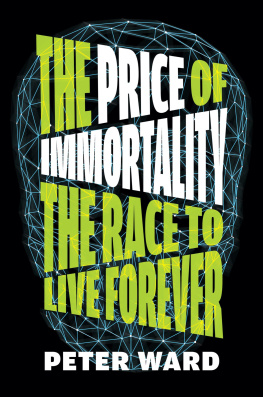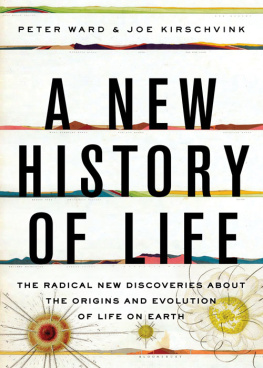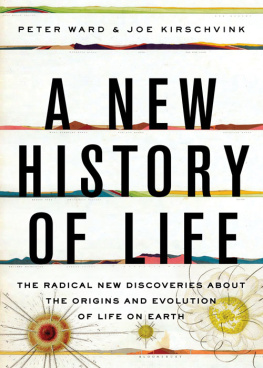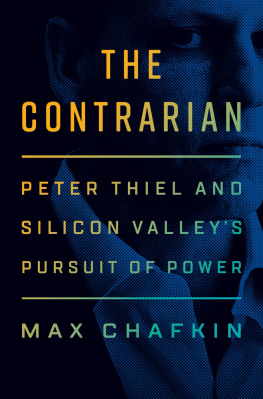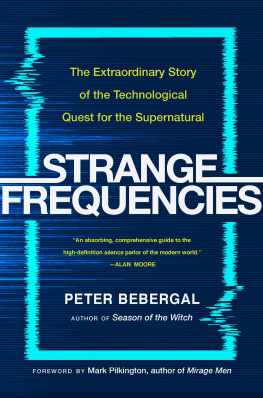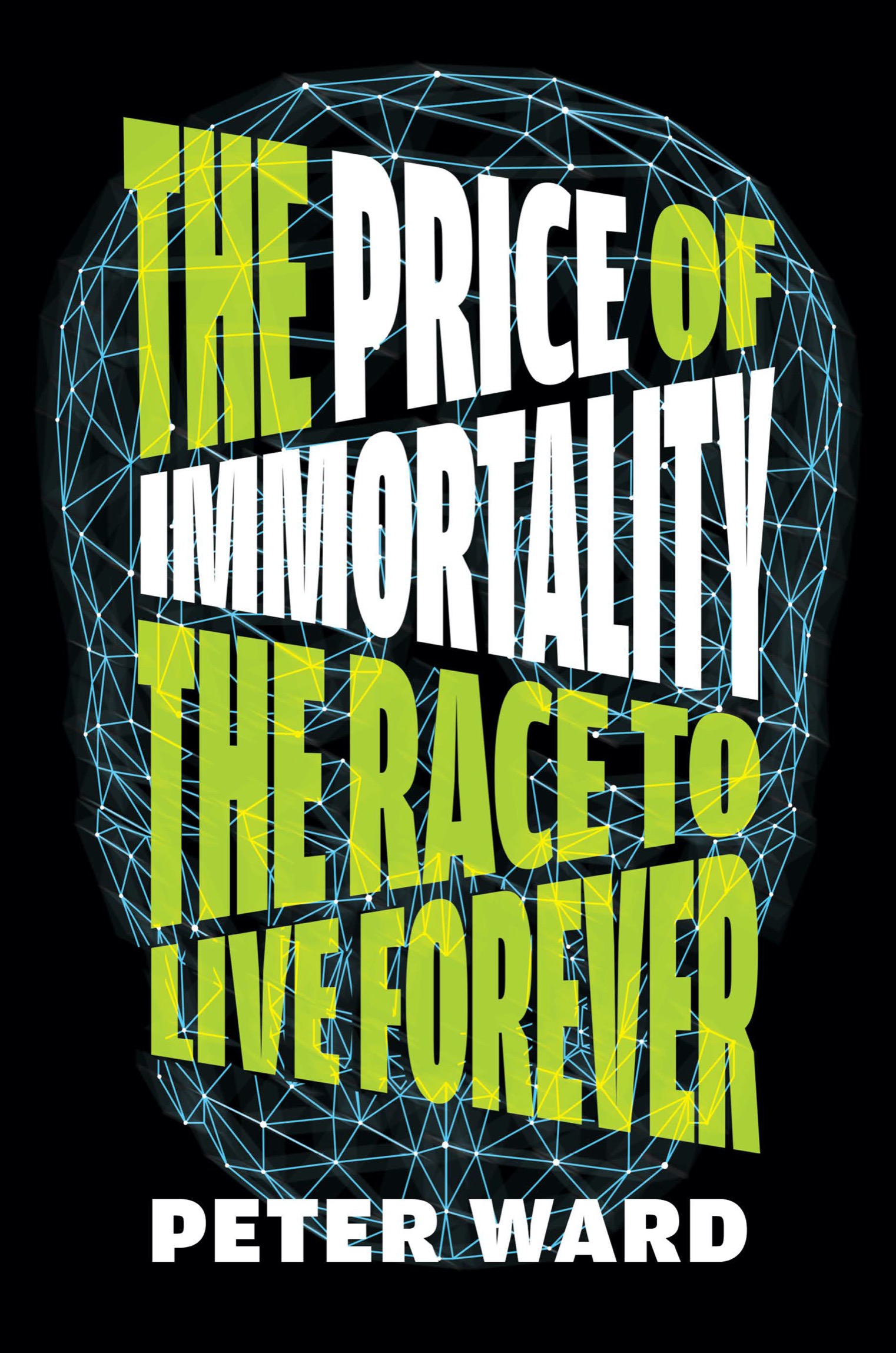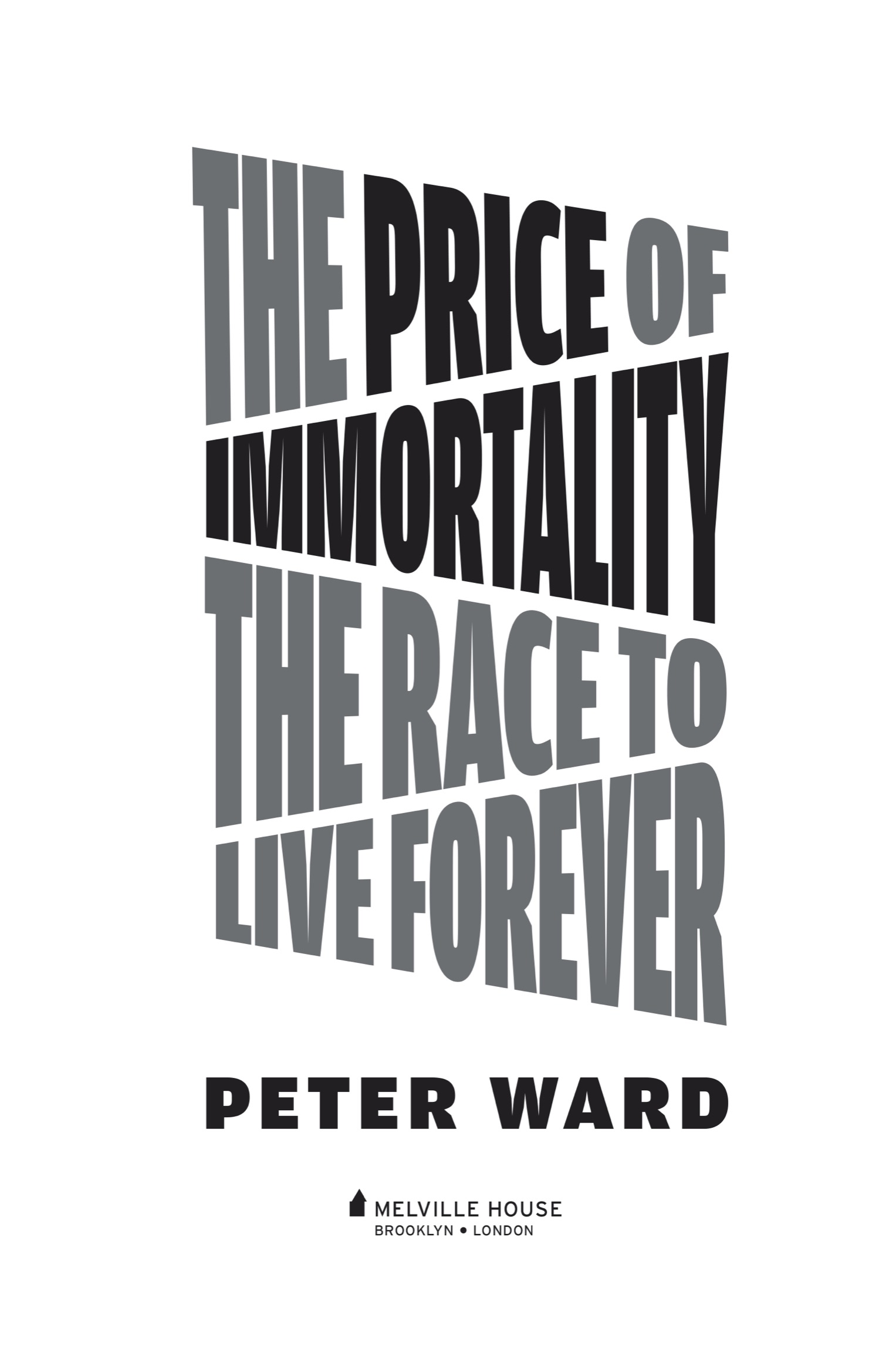For Seren and Leeloo, with whom forever would seem so short.
INTRODUCTION
In Ancient Greek mythology, Orpheus was one of the first men to challenge the concept of death. When his wife Eurydice died, he was overcome with grief. Refusing to accept her fate, the hero traveled to the underworld in an attempt to bring her back to life. There, he charmed the guardians of the River Styx, ferryman Charon and the many-headed dog Cerberus, with his musical talents. The depth of his suffering moved Hades, the king of the underworld, who allowed him to take Eurydice back to the land of the living on one condition: As they left the underworld, neither of them could look back. When Orpheus approached the surface, he panicked and wanted to make sure he wasnt leaving alone. Without thinking, he turned to check that his wife was there, and just like that, she was gone.
The tale of Orpheus was among the first to emphasize the dangers of rejecting death, and cautioned the reader about the perils of looking back instead of forward. But neither the legend of Orpheus nor the thousands of stories that followed managed to deter people from seeking a cure for mortality. For centuries, wide-eyed optimists from all over the globe have sought magical potions, traveled to obscure and mythical destinations, and made deals with devils and demons to try to ward off death. None of them succeeded, and yet the attempts keep coming.
The potions and elixirs may have new names, but they still appeal to one of humanitys strongest instincts: survival, no matter the cost. The race to immortality has various definitions. To some, eternal life is a spiritual pursuit, and for others it can refer to leaving a lasting impact through their acts or work. But this book is about the most literal take on immortalityto live forever physically in the world as we know it now. Those who chase such a lofty goal call themselves immortalists.
There are enough immortalists in the world to warrant annual events on different continents, and there are several groups, communities, and even religions that bring together people who believe a never-ending life is possible. I first encountered this way of thinking while working on my first book The Consequential Frontier, about the privatization of space. Space enthusiasts, particularly those looking forward to settling on other planets in the solar system and beyond, often see life extension and immortality as a key part of that process. Prolonging life by putting people in stasis would allow humans to travel much farther distances. Sending humans off to live on other planets is also frequently cited as a solution to the potential overpopulation that could arise from ending death.
The modern interpretation of immortalism emerged in the postatomic world of the United States, where science fiction merged into reality. (Isaac Asimov said, The dropping of the atomic bomb in 1945 made science fiction respectable.) After World War II, the planet was gripped by apocalyptic anxiety, but was also inspired by the endless possibilities of science. Against this uncertain backdrop, enthusiasts launched new and technology-driven projects to cheat death. Despite attracting cult followings, these movements made little tangible progress. Most of their hope was poured into cryonics, the practice of freezing the dead so they could be reanimated in the future, a technique that remains unproven today.
But at the turn of the millennium, cause for optimism emerged. New thinkers in the field made startling declarations about the prospect of immortality. Hope was placed in the emerging field of biotechnology, where huge breakthroughs were being made. One of the major thinkers in this domain, Dr. Aubrey de Grey, captured the burgeoning enthusiasm with his theory of escape velocity, which told immortalists they only had to stay alive for a few more decades and they would reach the point when biotech would keep them alive indefinitely. As the understanding and mastery of fields like gene therapy, stem cells, and gene editing increased, the immortalists were faced with a scenario most thought would never happen: They might be proved correct.
Immortalists believe escape velocity is in sight, but they remain in the minority. In the vacuum between scientific theory, discovery, and real-world solutions, a familiar crowd of con artists and fraudsters have emerged to take advantage of those seeking never-ending life. Against this weird set of circumstances, I plunged into the world of immortalists, hoping to unravel what was real and what was false, and to discover the real price of the modern pursuit of immortality.
Like Orpheus, this book straddles two worlds, one considerably darker than the other. My first trip to Florida to seek out a community of immortalists took place months before the COVID-19 pandemic ravaged the world as we knew it. The rest of the reporting occurred after.
When the virus struck, the path to immortality became even more difficult, as did my own task of getting to know the people who believed they would never die. A pandemic is one of the worst nightmares of an aging immortalist. Many of them went underground, a necessary measure to increase their chances of living forever. Meetups were canceled, in-person conferences moved online, and even some laboratory space used to investigate death was repurposed for the more immediate battle facing humanity.
COVID-19 forced the rest of us to confront death in a way each generation believes it never will. Almost overnight, desperate yet pragmatic decisions were forced on the world, from doctors choosing who to treat and who to let die, to politicians and talking heads justifying rising death rates by pointing to underlying conditions and the ages of those who were lost. As the immediate fear of our own death increased, our sensitivity to others dying fell. Every report on coronavirus statistics came with the caveat that a significant percentage of deaths were made up of either the elderly or people with pre-existing conditions, as if this somehow excused their passing. This qualification soothed the subconscious of the general population, reassuring them that death was something that happened to other people. As Ernest Becker says, paraphrasing Aristotle in his book The Denial of Death, luck is when the guy next to you gets hit by the arrow.
Even the most relentless optimist would struggle to find anything positive in a pandemic, but there is one consequence that offers humanity hopeillumination. Like a UV light on a grubby motel bed, COVID-19 has highlighted the seedy, dysfunctional foundations on which our society is constructed. Americas health care system, built for the profiting few rather than the needy masses, predictably failed to respond to such huge pressure, as over 750,000 people in the US have lost their lives as of early November 2021. Populist leaders around the world were exposed as fraudulent opportunists, unable to cope with a truly dangerous scenario not fabricated by their own spin doctors. And all the while inequality rattled on, underpinning the depth of this crisis and feeding the basis for the next one.

